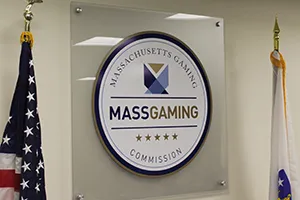 At the last public meeting of the Massachusetts Gaming Commission, officials have been considering a study that sheds light on the impact of gambling advertisements in Massachusetts. Aiming to inhibit the negative effects of advertising, the report focuses on the ever-expanding sports betting industry.
At the last public meeting of the Massachusetts Gaming Commission, officials have been considering a study that sheds light on the impact of gambling advertisements in Massachusetts. Aiming to inhibit the negative effects of advertising, the report focuses on the ever-expanding sports betting industry.
Dr. Rachel Volberg is one of the researchers behind the study of the Social and Economic Impacts of Gaming in Massachusetts (SEIGMA), funded by the Commonwealth of Massachusetts, Massachusetts Gaming Commission. She introduced the project by stating that advertisements have a pronounced influence on the attitude of consumers toward gambling products. The report has been based on data from online panels from 2014, 2022, and 2023.
Following the overturning of the Professional and Amateur Sports Protection Act in 2018, sports betting advertisements have become omnipresent across the states, with various channels to reach wide audiences, including TV, social media, and influencer endorsements. Massachusetts joined the list of states that authorized sports betting in 2023.
Data by SEIGMA points to TV sports betting advertisements’ expenses reaching $314.6 million in 2022, a substantial increase compared to $21.4 million just a year earlier. As for the costs related to online sports betting ads, the figures reached $1.1 billion in 2021 and $1.9 billion in 2022.
Although there are established guidelines for sports betting ads, such as the inclusion of problem gambling helplines, there are a few limitations as a whole.
The Report Provides Recommendations to Ensure Safe Gambling Advertising Environment in Massachusetts
 The report’s data revealed that 75% of all online panel participants had played the state lottery in 2023. Approximately 35% bet on sports in 2023, up from 25% a year earlier.
The report’s data revealed that 75% of all online panel participants had played the state lottery in 2023. Approximately 35% bet on sports in 2023, up from 25% a year earlier.
When asked about the volume of sports betting advertisements seen in Massachusetts after the official launch of the industry in 2023, 58.7% of respondents answered there had been a lot of ads. However, 77.8% of participants did not believe gambling ads had any impact on their gambling behavior. Some 15% shared that ads had made them gamble less.
Ads containing promotional content sparked the interest of nearly 64% of online respondents and caused them to gamble more.
The American Gaming Association has previously offered guidelines for improving the regulatory control over gambling advertisements.
Similarly, Dr. Volberg concluded the presentation by providing recommendations to the gambling regulator aimed at ensuring a safe and transparent advertising atmosphere for gambling operators and consumers. Some of the suggestions included the limitation of ads on social media platforms and celebrity endorsements to lessen their appeal to the younger generation, at-risk, and problem gamblers. Additionally, the researcher recommended limiting ads for higher-risk games, as well as promotional content aimed at incentivizing players to create gambling accounts or gamble more.